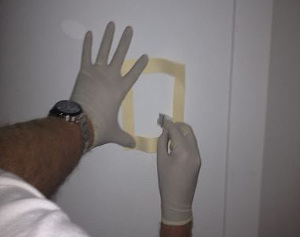Methamphetamine: Landlords call for more clarity
Caught between a rock and hard place is how many property managers feel when it comes to dealing with methamphetamine and rental properties.
Thursday, September 30th 2021, 11:56AM

These feelings were made loud and clear in a REINZ survey of property managers.
They want one fixed methamphetamine standard that is ruled on consistently and a set of rules that relate specifically to residential tenancies to provide clarity to both landlords and property managers.
The industry is still waiting on a full review of methamphetamine safety levels within the meth-testing standard to be undertaken.
REINZ doesn’t know whether this will result in the regulations being officially changed. Many property managers still continue to operate in line with NZS 8510.
The Residential Tenancies Amendment Act 2019 allows for regulations to be developed to set out a maximum acceptable level for meth contamination, processes for testing and decontamination of rental properties.
Under the Residential Tenancies Act 1986 (RTA), landlords must provide the premises in a reasonably clean condition ensuring they comply with health and safety.
Tenants must not use the rental property for an unlawful purpose – this includes smoking or manufacturing meth.
If landlords rent out contaminated properties, they may be breaching their obligations under the RTA. They may also be breaching other legislation such as the Building Act 2004 and the Health Act 1956.
Confusing standards
Whilst not law, the methamphetamine testing and remediation standard NZS 8510 is considered best practice at 1.5µg/100cm².
The standard was developed by a standards development committee consisting of various representatives from central government such as the Health and Environment Ministries and Housing New Zealand.
However, most Tenancy Tribunal rulings now use the Gluckman Report as their yardstick and refer to methamphetamine levels below 15µg/100cm² as being unlikely to give rise to any adverse health effects.
The difficulty arises where a property has been tested before a tenancy starts with clear meth readings, then post tenancy it is tested and records meth readings up to 14µg/100cm².
Based on how the Tenancy Tribunal considers contamination levels, it will be unlikely the property landlord will be able to recoup any decontamination costs from the tenants.
In a REINZ survey the majority of members say their Tenancy Tribunal decisions in regard to contamination were based on the Gluckman Report. Less than 4.3% of decisions referred to NZS: 8510.
Unfortunately, this is resulting in owners only being able to recoup decontamination costs for areas with readings above 15ug/100cm².
The flow on effect being many landlords now simply don’t test, are frustrated and don’t understand the existing system.
This is a real concern for incoming tenants/property managers who may be unaware of existing positive readings.
Additionally, if a landlord ends up in a situation where their property has had meth contamination, they will have a difficult time trying to prove who caused this if a pre-tenancy meth test has not been undertaken.
Is it fair?
The question landlords are now asking, is whether it’s fair that an owner wanting to ensure they keep their home meth free will need to undertake remedial work that may or may not be covered by their insurance policy?
Each insurance company is taking its own approach in regard to methamphetamine.
Landlords and property managers need to look at individual policy wording as approaches range from some based on the Gluckman Report, to the New Zealand Standard or even some other level as insurers determine when damage has occurred.
Careless damage
Generally, if the tribunal feels it has sufficient evidence on the balance of probability that the tenants caused the contamination, this will be awarded to the landlord (treated like careless damage), and the same applies with most retesting costs.
Tenants who smoke, sell or manufacture meth in a rental property are using the property for an unlawful purpose.
The fines associated with this breach have now increased up to $1,800.
| « Rent levels countrywide | Changes to tenancy terminations » |
Special Offers
Comments from our readers
No comments yet
Sign In to add your comment
| Printable version | Email to a friend |


